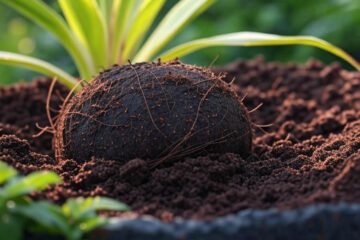
Hybrid Coco Farming: A Sustainable Approach to Modern Agriculture
Hybrid Coco: The Revolutionary Agricultural Innovation Transforming Sustainable Farming
Hybrid Coco Farming: A Sustainable Approach, In the ever-evolving landscape of agricultural innovation, Hybrid Coco has emerged as a groundbreaking solution that combines traditional cultivation methods with cutting-edge technology. At our research facilities, we have dedicated years to developing this revolutionary hybrid coconut variety that promises to transform sustainable farming practices worldwide. Through careful genetic selection and responsible breeding techniques, we have created a coconut hybrid that stands as a testament to agricultural advancement while maintaining ecological integrity.
What Makes Hybrid Coco Unique?
Hybrid Coco represents a significant leap forward in coconut cultivation. Unlike conventional coconut varieties, our hybrid combines the most desirable traits from multiple parent strains to create a superior product. The distinctive characteristics of Hybrid Coco include:
- Enhanced resistance to common diseases that plague traditional coconut plants
- Accelerated growth rates that reduce time to maturity by up to 40%
- Increased yield capacity with each tree producing 30-50% more fruit
- Improved nutritional profile with higher concentrations of beneficial compounds
- Greater adaptability to diverse climate conditions and soil types
These advantages make Hybrid Coco an ideal choice for both large-scale agricultural operations and small-scale farmers looking to maximize productivity while minimizing environmental impact.
The Scientific Foundation of Hybrid Coco Development
The development of Hybrid Coco was not an overnight success but rather the culmination of decades of scientific research and careful breeding programs. Our team of agronomists and plant geneticists meticulously studied thousands of coconut varieties to identify specific traits that could be beneficially combined.
The process began with selecting parent varieties known for particular strengths—disease resistance from Pacific Island strains, productivity from Southeast Asian varieties, and drought tolerance from African coconut types. Through controlled pollination techniques, we were able to create first-generation hybrids that were then further refined through additional selective breeding.
Hybrid Coco represents the fifteenth generation of this careful breeding program, incorporating valuable traits while eliminating undesirable characteristics that might compromise sustainability or yield.
Environmental Benefits of Hybrid Coco Cultivation
We firmly believe that agricultural advancement should not come at the expense of environmental health. Hybrid Coco embodies this philosophy by offering numerous ecological benefits:
Carbon Sequestration Capabilities
Hybrid Coco plantations serve as excellent carbon sinks, with each mature tree capable of absorbing approximately 8-10 kilograms of carbon dioxide annually. When implemented on a large scale, Hybrid Coco farms can significantly contribute to carbon offsetting initiatives and climate change mitigation strategies.
Water Conservation Properties
One of the most remarkable features of Hybrid Coco is its enhanced water efficiency. Our hybrid variety requires approximately 30% less irrigation than conventional coconut trees, making it particularly valuable in regions facing water scarcity challenges. The root system has been optimized to efficiently extract and utilize available moisture, reducing wastage and conserving this precious resource.
Soil Health Improvement
The root structure of Hybrid Coco promotes soil stability and prevents erosion, particularly in coastal areas where erosion can be a significant concern. Additionally, the natural leaf litter from Hybrid Coco trees enriches the soil with organic matter, improving fertility and supporting diverse microbial communities essential for healthy agricultural ecosystems.
Economic Implications for Farmers and Communities
Beyond environmental benefits, Hybrid Coco offers substantial economic advantages for agricultural communities:
Increased Profitability Through Higher Yields
Farmers who have adopted Hybrid Coco consistently report yield increases averaging 45% compared to traditional varieties. This significant productivity boost translates directly to improved income opportunities for farming communities, especially in developing regions where coconut cultivation is a primary economic activity.
Product Diversification Opportunities
The versatility of Hybrid Coco extends beyond traditional coconut products. Our research has identified over 30 potential commercial applications, including:
- Premium coconut water with enhanced flavor profiles and nutritional value
- High-grade coconut oil with superior fatty acid composition for culinary and cosmetic applications
- Specialized coir products for horticultural and industrial uses
- Innovative food ingredients derived from coconut meat with improved processing characteristics
This product diversity allows farmers to access multiple market streams, reducing economic vulnerability to market fluctuations in any single coconut-derived commodity.
Implementation Strategies for Hybrid Coco Adoption
Successfully transitioning to Hybrid Coco cultivation requires thoughtful planning and implementation strategies. We recommend a phased approach that includes:
Gradual Integration with Existing Crops
Rather than immediate wholesale replacement, we advocate for integrating Hybrid Coco alongside existing coconut varieties. This gradual transition allows farmers to compare performance directly and adjust cultivation practices accordingly while minimizing risk.
Community Knowledge Transfer
We have developed comprehensive training programs designed to ensure that the specialized knowledge required to maximize Hybrid Coco potential is accessible to all farmers. These programs emphasize sustainable farming practices and maximize the economic returns on investment in hybrid varieties.
Establishing Regional Processing Infrastructure
To fully capitalize on the diverse product potential of Hybrid Coco, investment in appropriate processing facilities is essential. We work with agricultural cooperatives and regional development agencies to establish infrastructure that allows communities to process their harvest locally, retaining more economic value within producing communities.
Future Directions in Hybrid Coco Research
Our commitment to improving Hybrid Coco continues unabated, with several exciting research directions currently being pursued:
Climate Adaptation Enhancement
As global climate patterns become increasingly unpredictable, we are focusing on further enhancing the adaptive capacity of Hybrid Coco to withstand extreme weather events, including prolonged droughts, intense rainfall, and temperature fluctuations. This research aims to create even more resilient varieties that can thrive in changing conditions.
Nutritional Profile Optimization
Our nutritionists are working to further enhance the already impressive nutrient content of Hybrid Coco products. Current research indicates potential for significant increases in essential fatty acids, antioxidants, and micronutrients that could address specific nutritional deficiencies common in various regions.
Integration with Agroforestry Systems
The architectural characteristics of Hybrid Coco make it an excellent candidate for integration into comprehensive agroforestry systems. We are developing models that optimize the combination of Hybrid Coco with complementary crops and livestock, creating highly productive, ecologically sound agricultural systems.
Conclusion: The Promise of Hybrid Coco for Sustainable Agricultural Future
Hybrid Coco represents far more than just another agricultural innovation—it embodies our vision for regenerative, economically viable farming practices that support both human communities and natural ecosystems. By combining traditional agricultural wisdom with modern scientific understanding, we have created a coconut variety that offers solutions to many challenges facing contemporary agriculture.
As climate change, water scarcity, and food security concerns continue to impact global agricultural systems, innovations like Hybrid Coco provide tangible pathways toward resilience and sustainability. We remain committed to continuous improvement of this remarkable hybrid and to ensuring that its benefits are accessible to farming communities worldwide.
The journey of Hybrid Coco from research concept to agricultural reality demonstrates the power of purpose-driven agricultural innovation. As we continue to refine and expand this technology, we invite collaboration with farmers, researchers, and policymakers committed to creating agricultural systems that nourish both people and planet.



